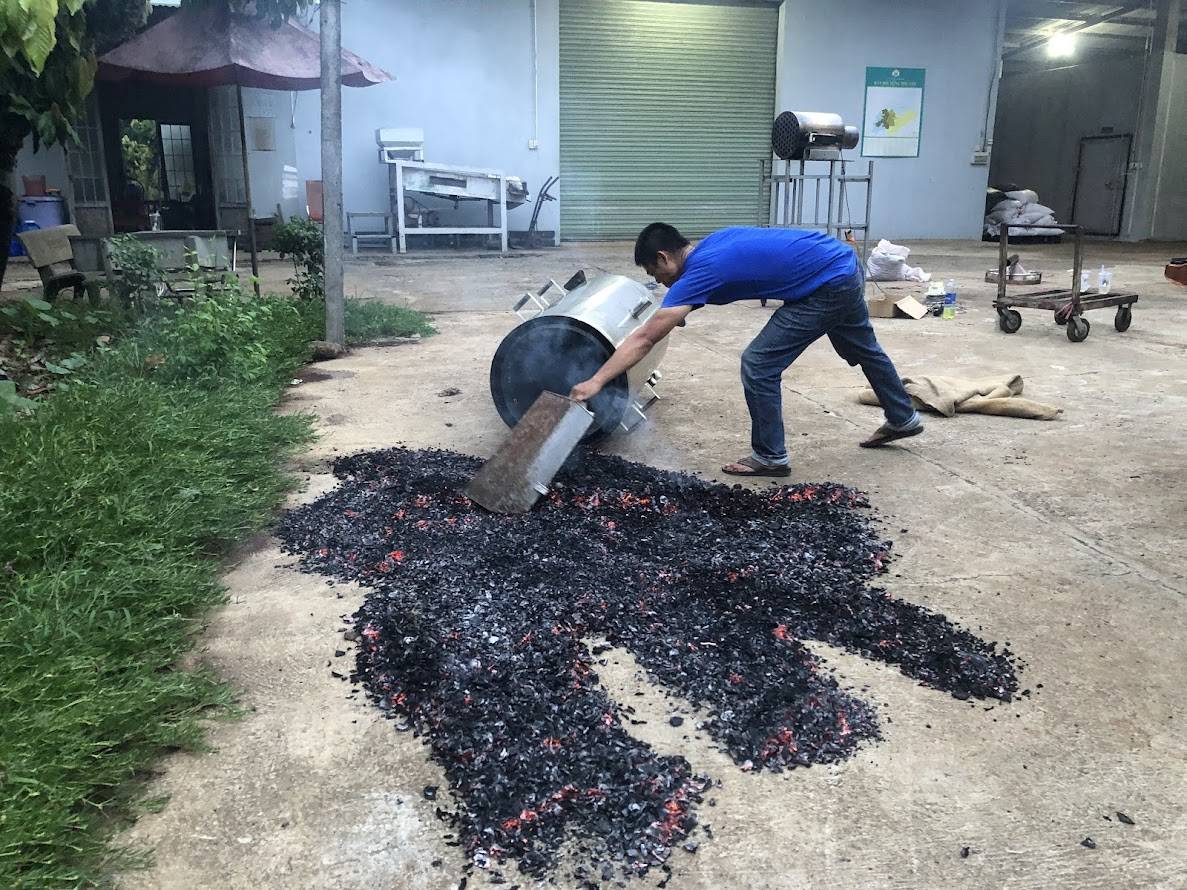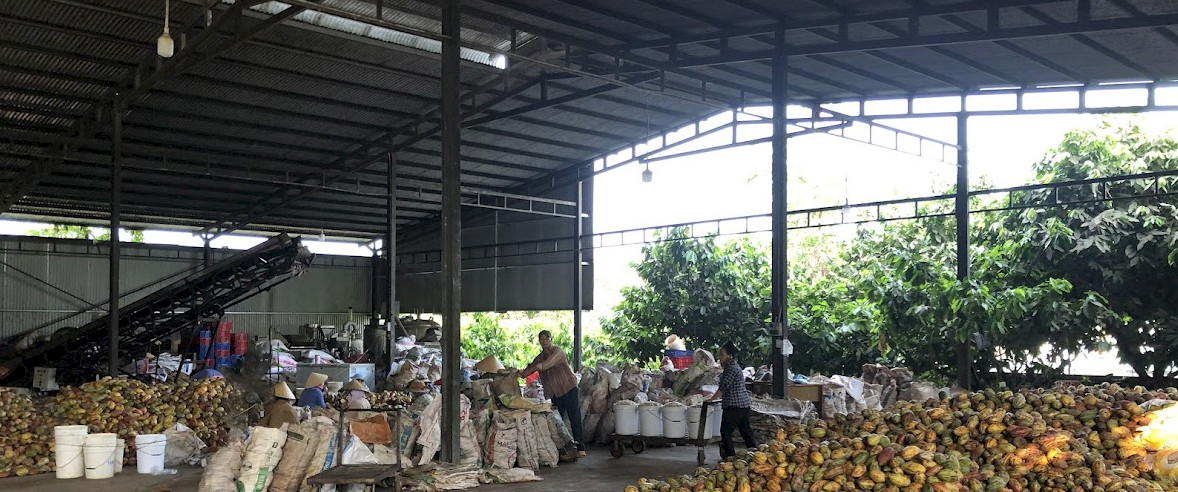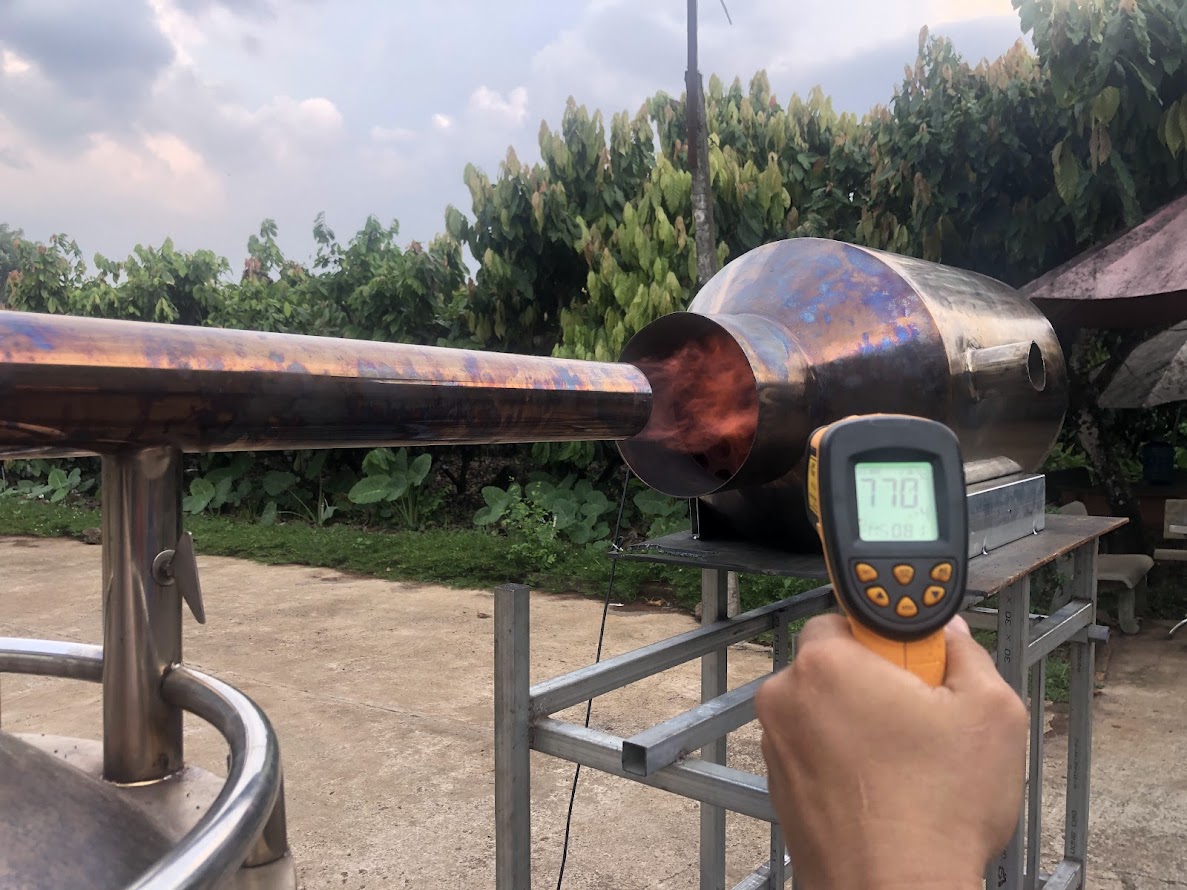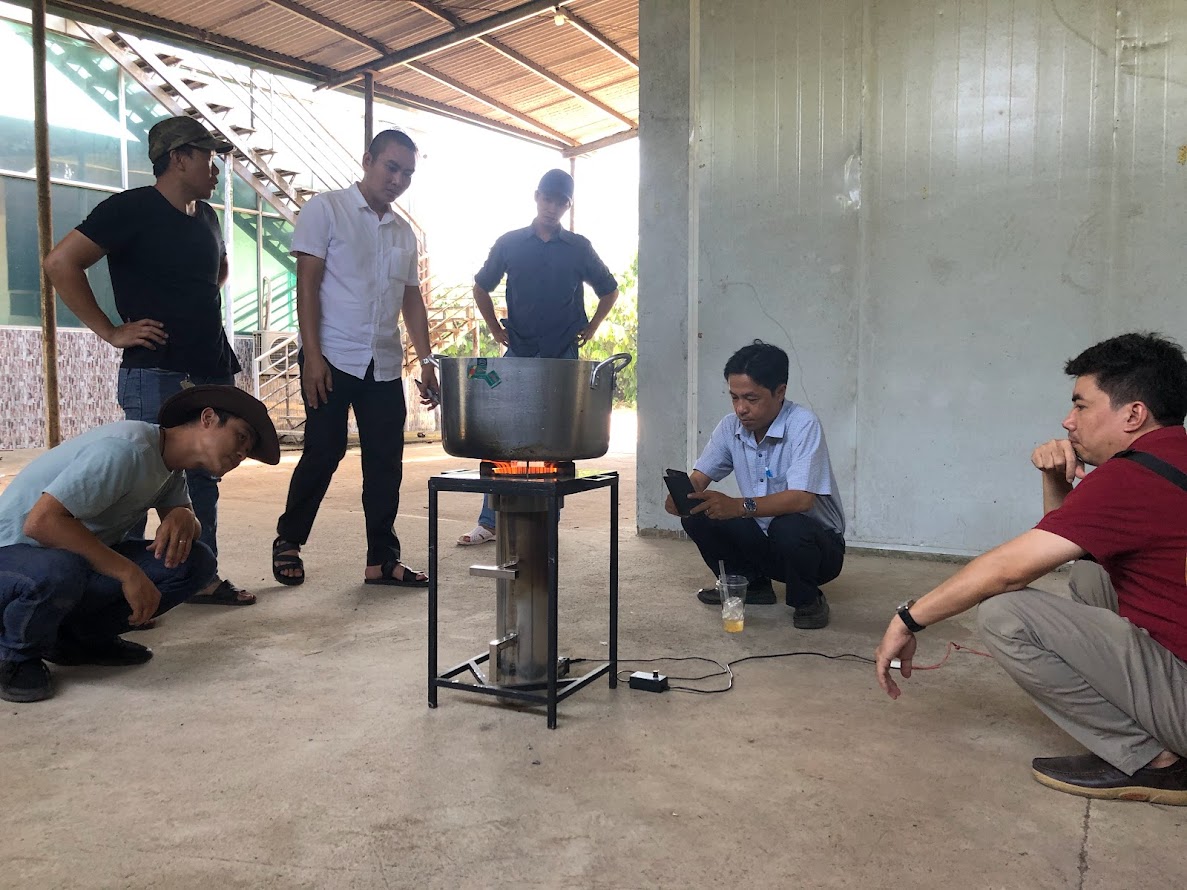
Dong Nai – Amid increasing challenges related to waste management and environmental protection in the cocoa industry, a Vietnamese company has taken the lead in producing biochar from discarded cocoa pods. This new method not only addresses waste management issues but also promotes circular economy approaches within the cocoa sector.
Circular Economy: A Sustainable Solution
The circular economy, which emphasizes waste reduction and resource optimization, is becoming increasingly important across industries, including cocoa. The EU funded SWITCH-Asia Circular Economy Cocoa: From Bean to Bar project, implemented by HELVETAS in collaboration with the Community Development Center (CDC), has supported Trong Duc Cocoa Company in transforming discarded cocoa pods into biochar—a high- value product that contributes to environmental protection and resource optimization.Trong Duc is the second-largest cocoa producer in Vietnam. To ensure that wet cocoa beans are fermented properly and maintain quality, the company is the only one in Vietnam that purchases fresh cocoa fruit directly from farmers. As a result, the company accumulates about 5,000 tons of fresh cocoa pod waste each year after processing. If not managed properly, this waste can cause significant environmental harm.

Trong Duc Company has up to 5,000 tons of fresh cocoa pod waste that needs to be processed every year
Production Process of Biochar
The biochar production process begins with shredding and drying the cocoa pods, which are then fed into the Torch Updraft Gasifier for gasification. During this process, the cocoa pods are converted into high-quality biochar at temperatures reaching up to 770°C. The resulting flame is smokeless, with high gasification efficiency, ensuring complete combustion of the material. The clean gas generated is used to provide heat for the plant, significantly improving cocoa bean drying efficiency and supporting other thermal applications within the facility. The biochar produced is of high quality and meets biochar quality standards as verified by independent testing from Quatest 3, which evaluates four basic indicators: fixed carbon, ash content, volatile matter, and hydrogen levels.


Key Benefits
Mr. Dang Tuong Khanh, CEO of Trong Duc Cocoa Company, shared, The cocoa pod waste generated after extracting the beans often becomes a worthless by-product that harms the environment. With this initiative, we have transformed this waste into a source of fuel, creating clean heat and high-value biochar. We hope this useful initiative can be applied more widely.
Mr. Duong Van Truc, a technical expert from Sawaen, expressed, “We are honored to be the first consulting unit selected for this innovative idea. This solution can be applied to both enterprises and individual farmers.”
According to Mr. Truc, the most significant benefits of this technology include:
- Optimizing Waste Management: This technology helps convert cocoa pod waste from a problematic disposal issue into a valuable product, thereby reducing waste volume and minimizing negative environmental impacts.
- Cost Savings and Improved Efficiency: The biochar production process provides clean heat for drying cocoa beans. The new drying system reduces drying time during the rainy season from 15 days to just 7 days, nearly matching the drying time in the dry season, thus significantly saving energy and reducing mold risk while improving product quality.
- Improving Soil Quality and Increasing Yield: The use of biochar enhances soil structure, retains moisture, and increases nutrient availability, thus boosting crop yields—a crucial factor in building a sustainable agricultural system.
- Environmental Protection: Biochar production contributes to long-term carbon storage, reducing CO2 levels in the atmosphere and helping to mitigate climate change. Additionally, biochar can absorb pollutants in water, improving water quality.
Mr. Nguyen Dinh Tuan, project manager for the Circular Economy in Cocoa Production at Helvetas Vietnam, noted, This initiative not only addresses waste management issues but also opens up new development opportunities for the cocoa industry. Revenue from biochar can offset waste management costs and provide additional income. This will encourage other cocoa enterprises to invest in circular economy technologies.
Future Directions
The success of the biochar production initiative at Trong Duc Cocoa Company serves as a tangible example of applying circular economy principles in the industry. Positive results show that transforming waste into resources is not only feasible but also brings significant benefits. Expanding biochar production will contribute to sustainable agricultural development, enhance environmental protection, and optimize production efficiency. Today, the circular economy is not merely a trend but an essential factor in building a sustainable future for the cocoa industry and the entire agricultural and food sector. Businesses and investors adopting this model do so not only for economic benefits but also to demonstrate their commitment to environmental protection and contribute to the common good of the community.
About the Project
Under the EU SWITCH-Asia programme, Helvetas is implementing the Circular Economy Cocoa: From Bean to Bar project in collaboration with the Community Development Center (CDC) over four years from 2022-2026. The main goal is to develop circular economy solutions within the cocoa industry and expand them to other agricultural and food sub-sectors, contributing to economic growth without harming the environment.
This story was originally published on the Vietnam Circular Economy Knowledge Hub an initiative of the Institute of Strategy and Policy on Natural Resources and Environment (Iponre Vietnam)
Photo credits: Helvetas Vietnam


